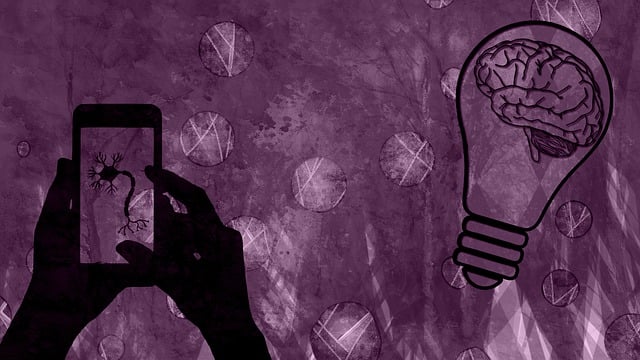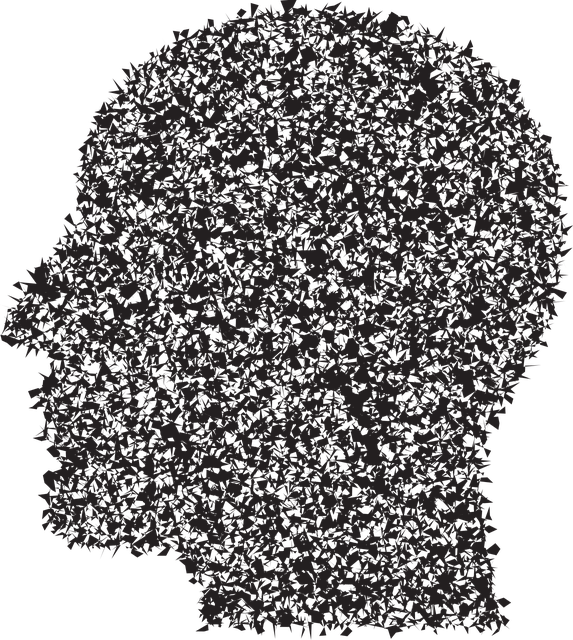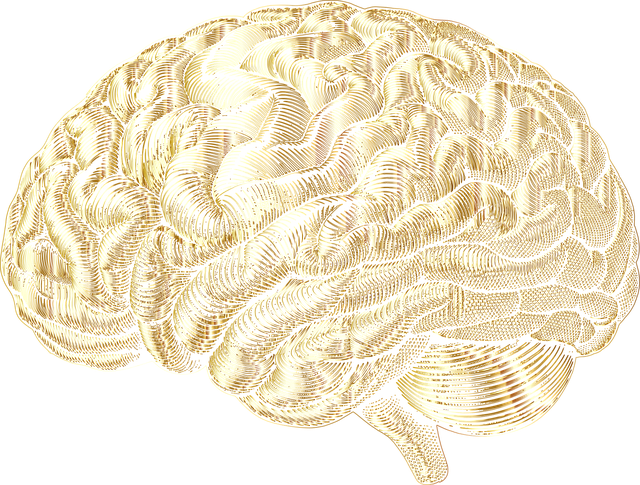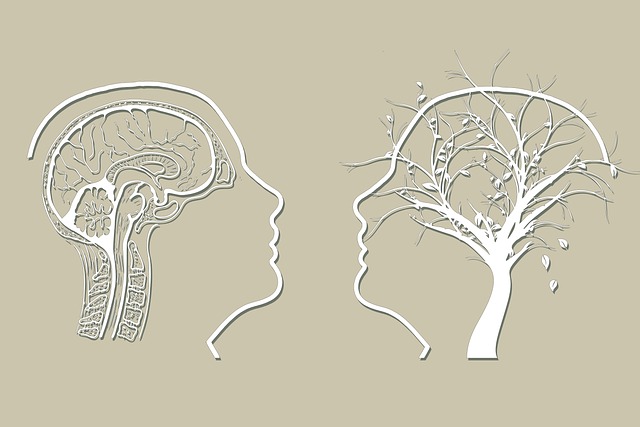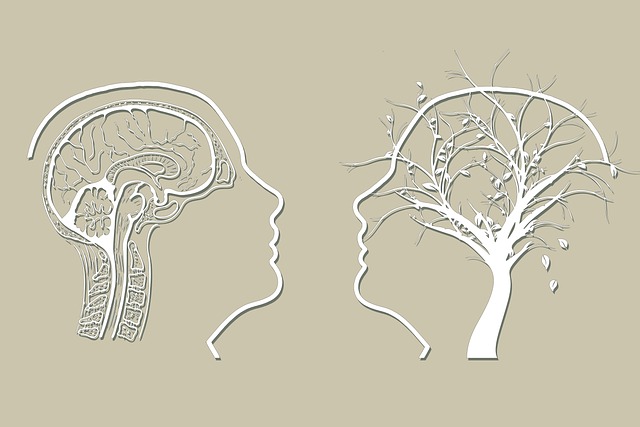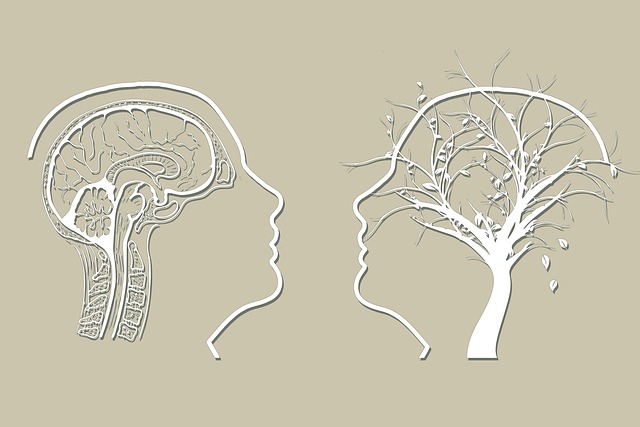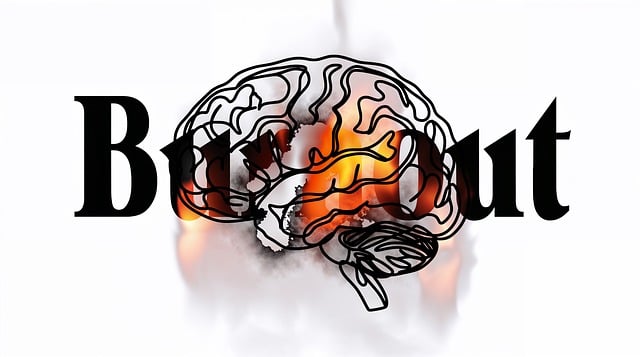In today's diverse society, Lafayette EMDR Certified Therapy emphasizes cultural sensitivity in mental healthcare. This approach recognizes that effective treatment requires understanding unique cultural beliefs, values, and practices. Therapists must tailor self-awareness exercises and emotional intelligence development to respect individual contexts, fostering trust and open communication. By addressing cultural nuances in risk assessment, it prevents burnout among professionals and benefits clients from diverse backgrounds. Overcoming unconscious biases and stereotypes is crucial; therapists engage in continuous learning and self-reflection to provide culturally sensitive care. Integrating compassion cultivation practices creates safe, supportive environments, enhancing therapeutic outcomes and promoting positive thinking by addressing root causes of distress within a diverse framework. Public awareness campaigns and mental wellness media contribute to this sensitivity, moving towards an inclusive system that values diversity and improves access to quality care for all.
In today’s diverse society, cultural sensitivity in mental healthcare is paramount. Understanding cultural diversity and its impact on mental health forms the foundation for effective treatment. The article explores the crucial role of Lafayette EMDR Certified Therapy in fostering culturally sensitive practices, addressing challenges like barriers and biases to overcome. It delves into strategies for building a competent healthcare environment and presents compelling case studies showcasing successful implementation of cultural sensitivity in therapy sessions.
- Understanding Cultural Diversity and Its Impact on Mental Health
- The Role of Lafayette EMDR Certified Therapy in Culturally Sensitive Practice
- Challenges in Providing Sensitivite Care: Barriers and Biases to Overcome
- Building a Culturally Competent Healthcare Environment
- Case Studies: Successful Implementation of Cultural Sensitivity in Therapy Sessions
Understanding Cultural Diversity and Its Impact on Mental Health

In today’s diverse society, mental healthcare professionals must embrace cultural sensitivity to provide effective treatment for a wide range of clients. Understanding cultural diversity goes beyond recognizing different ethnic backgrounds; it involves comprehending the unique beliefs, values, and practices that shape individuals’ lives. For instance, Lafayette EMDR Certified Therapy recognizes that stress reduction methods vary across cultures. What works for one person may not resonate with another due to deeply held cultural norms.
This awareness is crucial when helping clients navigate their emotional experiences. Encouraging self-awareness exercises and cultivating emotional intelligence can be powerful tools, but they must be tailored to respect individual cultural contexts. By doing so, therapists foster an environment of trust and understanding, enabling clients from diverse backgrounds to express themselves openly and work towards healing.
The Role of Lafayette EMDR Certified Therapy in Culturally Sensitive Practice

Lafayette EMDR Certified Therapy plays a pivotal role in enhancing cultural sensitivity within mental healthcare practices. This therapeutic approach, rooted in Eye Movement Desensitization and Reprocessing (EMDR), is designed to help clients process traumatic memories and emotions. By integrating cultural competencies, Lafayette EMDR therapists can create a safe and supportive environment, recognizing that every client brings their unique cultural background and experiences into the therapy room. This sensitivity ensures that treatment plans are tailored to meet individual needs, fostering better engagement and outcomes.
Moreover, this certified therapy contributes to burnout prevention among mental health professionals by providing effective tools for managing complex cases. By addressing cultural nuances during risk assessment for mental health professionals, therapists can mitigate potential challenges and improve self-esteem both within the therapeutic context and in daily practice. Thus, Lafayette EMDR Certified Therapy not only benefits clients but also supports the well-being of healthcare providers.
Challenges in Providing Sensitivite Care: Barriers and Biases to Overcome

Providing culturally sensitive care presents unique challenges in mental healthcare. One significant barrier is the potential for unconscious biases and stereotypes that can impact professionals’ interactions with clients from diverse backgrounds. These biases, often rooted in societal norms and personal experiences, may lead to misjudgments and ineffective treatment approaches. For instance, a therapist’s preconceived notions about cultural practices or beliefs could hinder their ability to create a safe and supportive environment for a client seeking help.
Overcoming these challenges requires professionals like Lafayette EMDR Certified Therapists to engage in ongoing self-reflection and education. Developing inner strength through compassion cultivation practices and resilience building is essential. This involves cultivating awareness of one’s own biases, learning about different cultural perspectives, and adapting therapeutic techniques to meet the unique needs of each client. By embracing these strategies, therapists can ensure that their practice truly meets the holistic needs of individuals seeking support.
Building a Culturally Competent Healthcare Environment

In creating a culturally sensitive mental healthcare environment, professionals must strive to build practices that honor and respect diverse cultural backgrounds. This involves understanding the unique needs and perspectives of each client, as cultural identity significantly influences an individual’s experience with mental health issues. By integrating compassion cultivation practices, such as Lafayette EMDR Certified Therapy, healthcare providers can foster a safe and supportive atmosphere. This approach not only enhances therapeutic outcomes but also promotes positive thinking by addressing the root causes of distress within a culturally competent framework.
Public awareness campaigns development plays a pivotal role in cultivating this sensitivity. Educating both healthcare professionals and the broader public about cultural competency ensures that everyone involved in mental healthcare is attuned to the nuances of different cultures. Through these efforts, we can move towards a more inclusive system that values diversity, thereby improving access to quality care for all.
Case Studies: Successful Implementation of Cultural Sensitivity in Therapy Sessions

In recent years, there has been a growing emphasis on cultural sensitivity within mental healthcare practices, with numerous case studies highlighting successful implementations. One notable example is the integration of Lafayette EMDR Certified Therapy, which has shown remarkable results in treating individuals from diverse cultural backgrounds. By recognizing and understanding clients’ cultural contexts, therapists can create safe and supportive environments, fostering open communication. This approach not only enhances the therapeutic alliance but also ensures that interventions are culturally appropriate and effective.
The successful application of cultural sensitivity goes beyond individual therapy sessions. Public Awareness Campaigns Development and Mental Wellness Podcast Series Production have played a significant role in promoting Mental Health Awareness. These initiatives educate communities about cultural considerations in mental healthcare, breaking down barriers and promoting inclusivity. Through sharing real-life examples and personal narratives, these campaigns help dispel stereotypes and encourage a more nuanced understanding of diverse cultural needs in therapy.
Cultural sensitivity in mental healthcare is no longer a consideration, but an imperative. By integrating practices like Lafayette EMDR Certified Therapy, therapists can navigate the intricate web of cultural diversity, addressing barriers and biases to provide inclusive care. Building a culturally competent environment involves continuous learning and adaptation, as highlighted by successful case studies. Embracing these strategies ensures that individuals from all backgrounds receive respectful, effective mental health treatment, fostering better outcomes and stronger communities.


